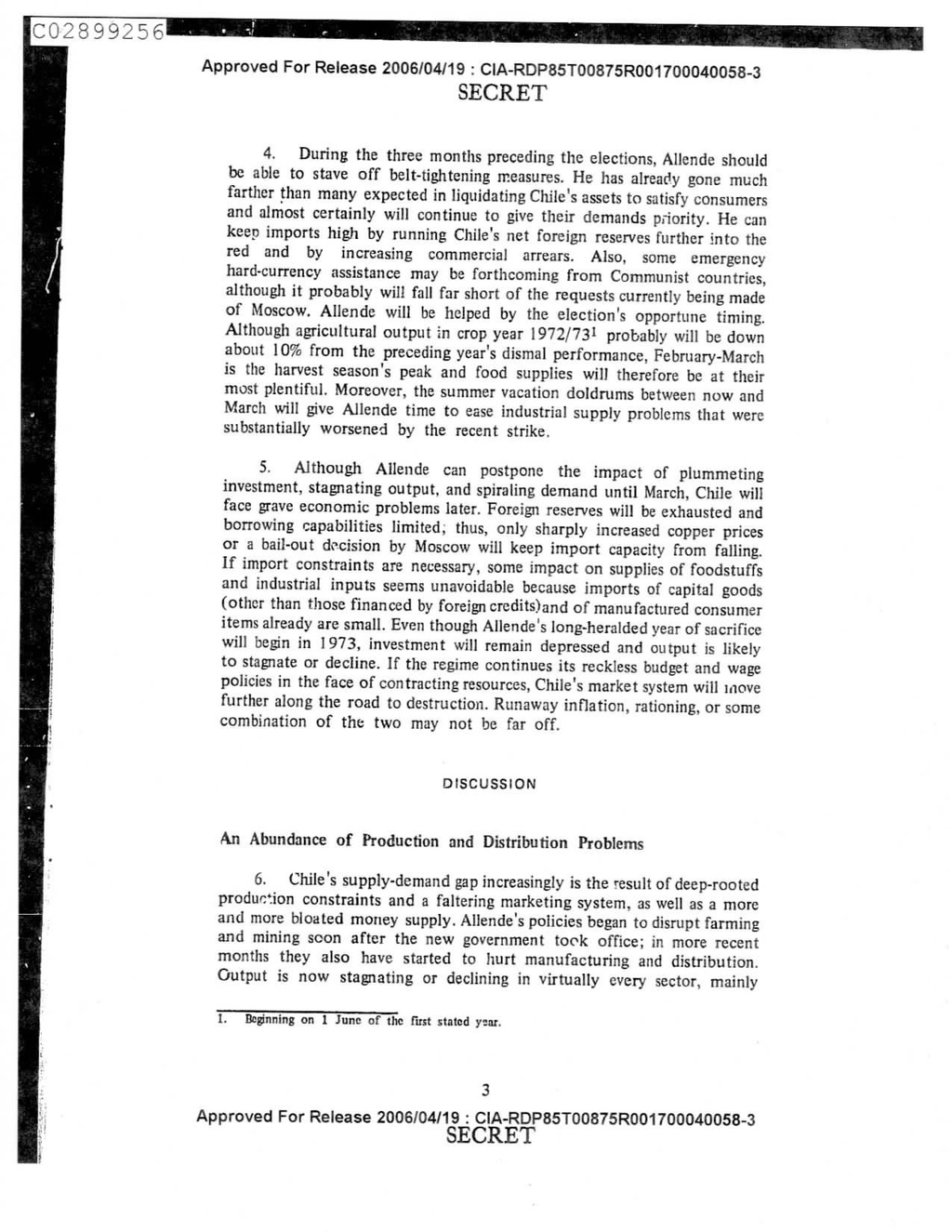This page has been validated.
Approved For Release 2006/04/19 : CIA-RDP85TO0B75RO0170004005843 SECRET
- During the three months preceding the elections, Allende should be able to stave off belt-tightening measures. He has already gone much farther than many expected in liquidating Chile's assets to satisfy consumers and almost certainly will continue to give their demands priority. He can keep imports high by running Chile's net foreign reserves further into the red and by increasing commercial arrears. Also, some emergency hard-currency assistance may be forthcoming from Communist countries, although it probably will fall far short of the requests currently being made of Moscow. Allende will be helped by the election's opportune timing. Although agricultural output in crop year 1972/73[1] probably will be down about 10% from the preceding year's dismal performance, February-March is the harvest season's peak and food supplies will therefore be at their most plentiful. Moreover, the summer vacation doldrums between now and March will give Allende time to ease industrial supply problems that were substantially worsened by the recent strike.
- Although Allende can postpone the impact of plummeting investment, stagnating output. and spiraling demand until March, Chile will face grave economic problems later. Foreign reserves will be exhausted and borrowing capabilities limited, thus, only sharply increased copper prices or a bail-out decision by Moscow will keep import capacity from falling. If import constraints are necessary, some impact on supplies or foodstuffs and industrial inputs seems unavoidable because imports of capital goods (other than those financed by foreign credits) and of manufactured consumer items already are small. Even though Allende's long-heralded year of sacrifice will begin in 1973, investment will remain depressed and output is likely to stagnate or decline. If the regime continues its reckless budget and wage policies in the face of contracting resources, Chile's market system will move further along the road to destruction. Runaway inflation, rationing, or some combination of the two may not be far off.
- An Abundance of Production and Distribution Problems
- Chile's supply-demand gap increasingly is the result of deep-rooted production constraints and a faltering marketing system, as well as a more and more bloated money supply. Allende's policies began to disrupt farming and mining soon after the new government took office; in more recent months they also have started to hurt manufacturing and distribution. Output is now stagnating or declining in virtually every sector, mainly
DISCUSSION
- ↑ Beginning on 1 June of the first stated year.
3 Approved For Release 2006/04/19 : CIA-RDPB5TDDS75R001700040058-3 SECRET

